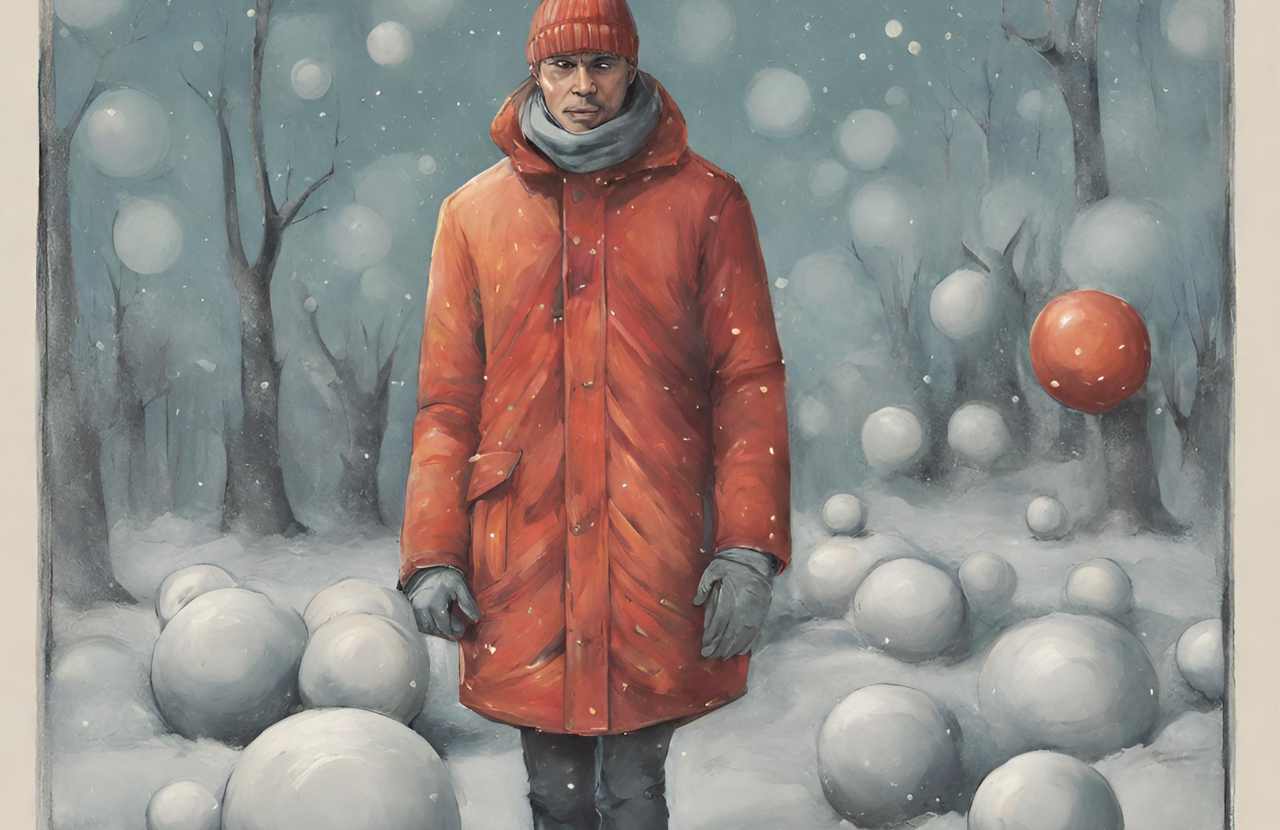Ever wondered, “Why are my balls cold to the touch?” Well, you’re not alone. This is a common question that many men have pondered. The answer lies in the unique design of the male reproductive system.
The testicles, or balls, are designed to be a few degrees cooler than the rest of the body for optimal sperm production. This is why they are located outside the body in the scrotum. When exposed to cold temperatures, the scrotum contracts, pulling the testicles closer to the body for warmth. So, if your balls feel cold to the touch, it’s likely because your body is doing its job to maintain the right temperature for sperm production.
So, next time you notice your balls are cold to the touch, remember it’s all part of your body’s clever design to keep things running smoothly down there. Stay tuned for more intriguing insights into the human body.
How to Measure Testicle Temperature?
Measuring testicle temperature accurately can be a bit challenging due to its external position and the body’s natural temperature regulation mechanisms. Typically, the scrotum adjusts its distance from the body to maintain testicular temperature about 2-4 degrees Celsius lower than the core body temperature, essential for proper sperm production and fertility.
To measure the temperature, one could use a skin surface thermometer, designed to accurately measure the skin’s surface’s temperature. You would gently press the thermometer against the skin of the scrotum, ensuring good contact without applying too much pressure that might affect the reading.
It’s important to note that this method may not provide an exact measurement of the internal temperature of the testicles but rather the surface temperature of the scrotum. For more precise internal measurements, medical professionals might use specific equipment in a controlled setting to monitor scrotal temperature for medical assessments.
Why are My Balls Cold To The Touch?
If you’ve ever wondered, “Why are my balls cold to the touch?” you’re not alone. It’s a common question with several possible explanations. Let’s break down the process of why this might be happening to you.
- Scrotal Thermoregulation
- Blood Flow and Circulation
- Environmental Factors
- Clothing and Material
- Underlying Medical Conditions
Scrotal Thermoregulation
Your testicles have a unique job: they need to keep sperm at a temperature slightly cooler than your body’s core temperature for optimal health and fertility. This is why “my balls are cold to the touch” isn’t necessarily a cause for concern. The scrotum, which houses your testicles, can contract and relax, moving your testicles closer to your body for warmth or further away to cool down. This process is known as scrotal thermoregulation.
Blood Flow and Circulation
Any part of your body’s temperature largely depends on blood flow. If “my balls are cold to the touch,” it could be due to reduced blood flow to the area. This might happen after prolonged sitting or in a particularly cold environment. The body prioritizes keeping your core warm, which can make the extremities, including the scrotum, feel colder.
Environmental Factors
The ambient temperature significantly affects how warm or cold your scrotum feels to the touch. If you’re in a chilly environment or have been swimming in cold water, it’s not uncommon to find that “my balls are cold to the touch.” Your body’s natural response is to protect vital organs by reducing blood flow to the extremities, which includes the scrotum.
Clothing and Material
What you wear can also impact scrotal temperature. Tight-fitting underwear or pants can restrict blood flow, while certain materials may not provide enough insulation from colder temperatures. If you’re concerned about why “my balls are cold to the touch,” consider switching to looser-fitting clothes or underwear made from warmer materials.
Underlying Medical Conditions
While there are many benign reasons for your testicles being cold, it’s important to note that certain medical conditions can also cause reduced temperature in the scrotum. Conditions such as varicocele, hypothyroidism, or circulatory issues could be underlying factors. If you’re consistently noticing that “my balls are cold to the touch” and other symptoms accompany it, it might be time to consult with a healthcare provider.
What Happens to Guy’s Balls when it’s Cold?
When temperatures drop, the human body has various mechanisms to preserve heat, and one of these involves the testicles. The testicles are housed in the scrotum, which is a pouch of skin that hangs outside the body. This anatomical arrangement keeps the testicles slightly cooler than the body’s core temperature, which is essential for optimal sperm production.
Sperm production thrives at about 93.2ºF (34ºC), which is a few degrees cooler than the normal body temperature of 98.6ºF (37ºC). However, when it gets cold, the scrotum and testicles react by contracting and moving closer to the body to maintain the necessary warmth for sperm production and to protect the testicles from extreme Cold, which can be harmful.
Exposure to cold temperatures can have various effects on the testicles and male fertility. While the scrotum’s contraction is a normal response to cold, prolonged exposure to cold environments can lead to complications. Studies have shown that long-term exposure to Cold may induce sperm DNA injury, although it does not necessarily affect sperm quality.
Additionally, colder weather has been associated with an increased risk of testicular torsion, a painful condition that can lead to the loss of the testicle if not treated promptly. It’s important to note that while the body has mechanisms to protect the testicles from temporary Cold, sustained or extreme cold exposure can be detrimental to testicular function and male reproductive health.
Final Words
In summary, there are multiple reasons why you might find that “my balls are cold to the touch.” From the body’s natural temperature regulation to environmental factors and potential health issues, it’s usually not something to worry about. However, if you’re experiencing discomfort or other symptoms, seeking medical advice is always the best course of action.

